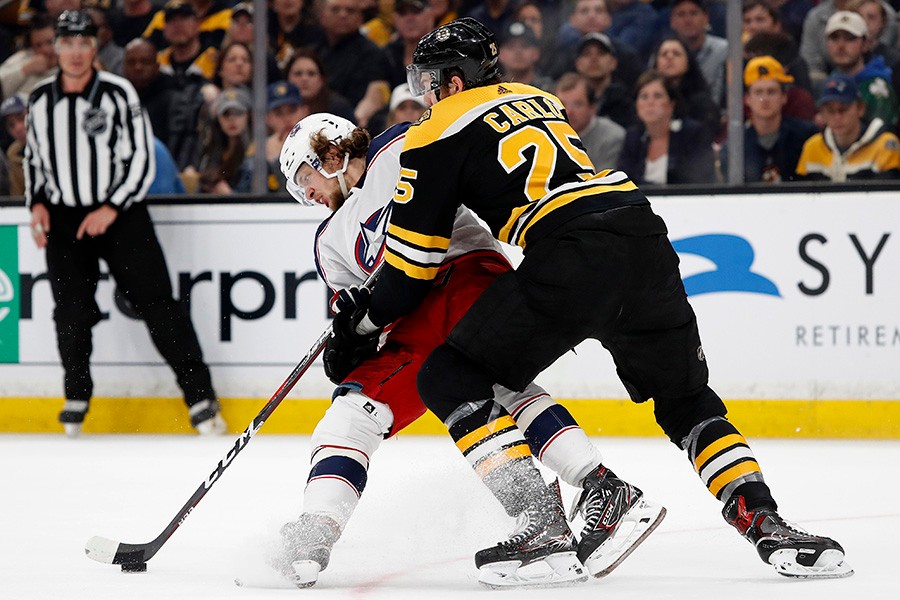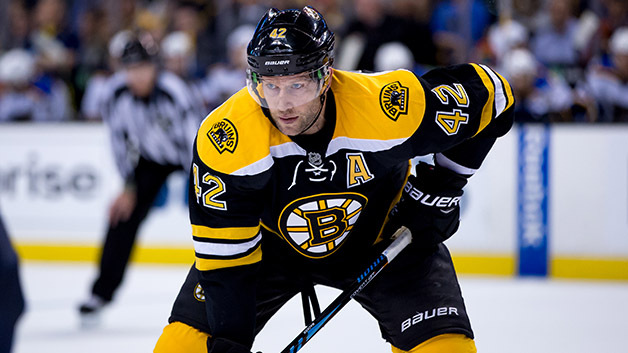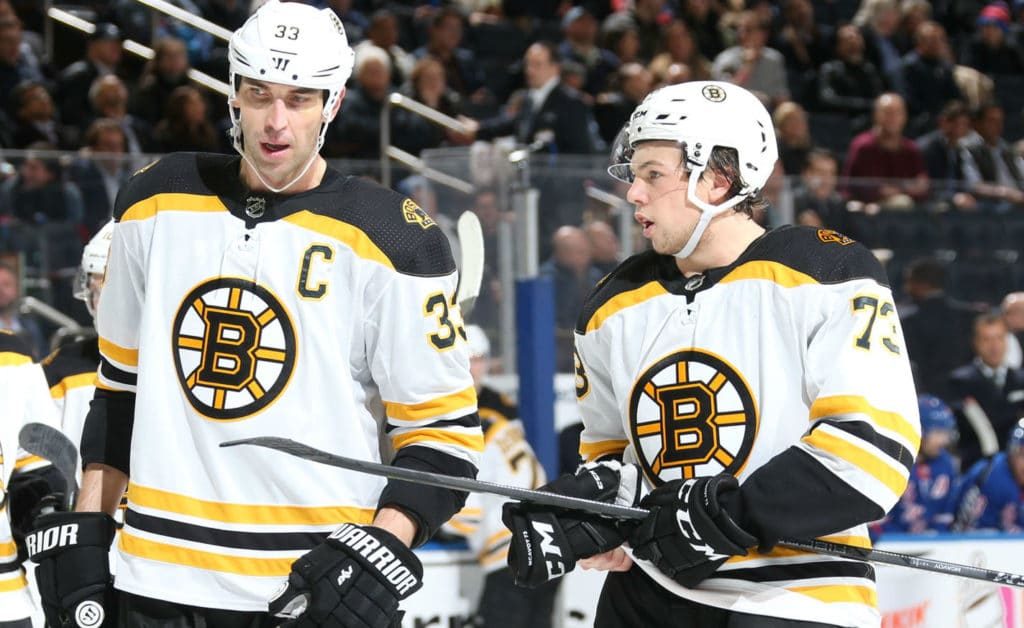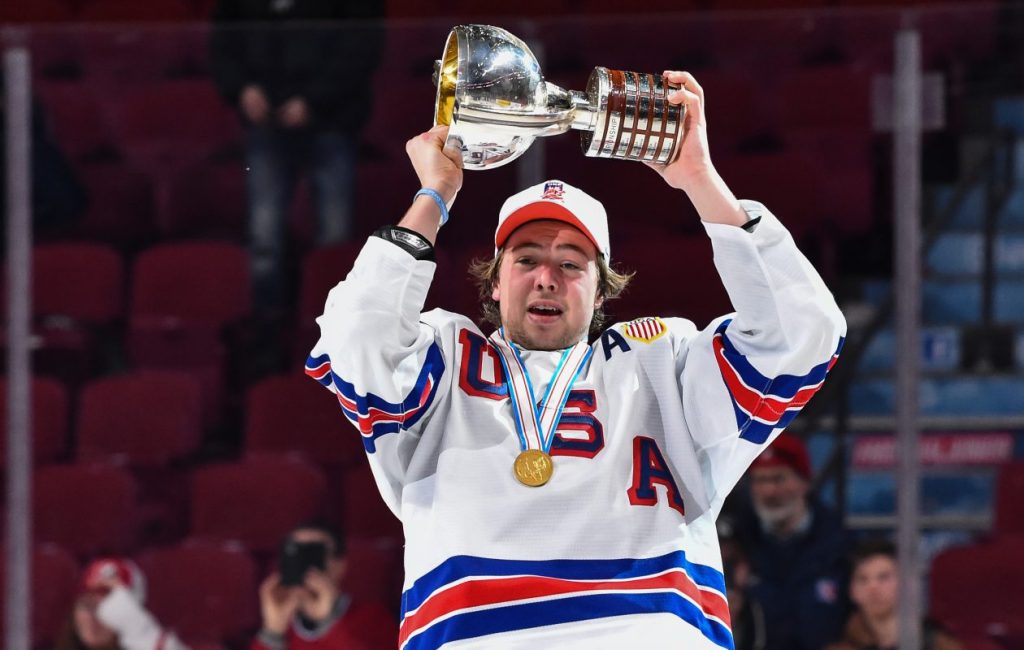On Tuesday night the Boston Bruins announced they signed restricted free agent Danton Heinen to a two-year deal with a $2.8 million cap hit. The NHL salary cap for the 2019-2020 season is $81.5 million, and the Bruins have about $8 million available. Now that Heinen is signed, what will be done with Charlie McAvoy and Brandon Carlo? McAvoy played 54 regular season games with 7 goals and 21 assists, totaling 28 points. In the post season he played 23 games with 2 goals and 6 assists for 8 points. Carlo played 72 regular season games, tallying 2 goals and 8 assists for 10 points. In the postseason he played 24 games with 2 goals and 2 assists for 4 points total.

Navigating the Cap
Last season Brandon Carlo was not as productive in points as Charlie McAvoy, but they’re both effective on the ice and bring speed and physicality to the team. Both are also now restricted free agents who want (and deserve) bigger contracts. With so little cap space, however, this will be a difficult task. The Bruins have a few options to explore, the most likely will be to trade players who are older and less productive. Defenseman John Moore, 28, is a likely candidate with a cap hit of $2.75. After 61 games played in the regular season, Moore got only 4 goals and 9 assists for 13 points. He played 10 postseason games and went pointless. Likewise, injury-prone defenseman Kevan Miller, 31, has a cap hit of $2.5 million and missed much of last season and the entirety of the postseason.
Trading Backes
David Backes is the subject of much discussion in this regard. He’s 35 with an annual cap hit of $6 million. He’s not as productive as he once was, and was a healthy scratch during stretches both in the regular and postseason. Trading Backes would free up a lot of space to sign McAvoy and Carlo, but can the Bruins find a team willing to take on those cap hits? There are teams out there with a large enough gap. Teams like Colorado, Winnipeg, and Ottawa all have over $20 million available, and could be good trade targets.

Bridge Contracts
Another option would be bridge contracts. While McAvoy and Carlo likely want larger, long-term contracts, they could be signed to short term contracts with the understanding that they’ll be revisited in a couple of years, once contracts expire for players such as Backes, David Krejci, and Tuukka Rask.
McAvoy is the Priority
One more potential solution, though not necessarily the most desirable, would be to only sign one of the two. If that’s the case, it has to be Charlie McAvoy. His production, ice time, and style of play makes him an obvious franchise player. You can count on the fact that the Bruins will sign McAvoy no matter what.




